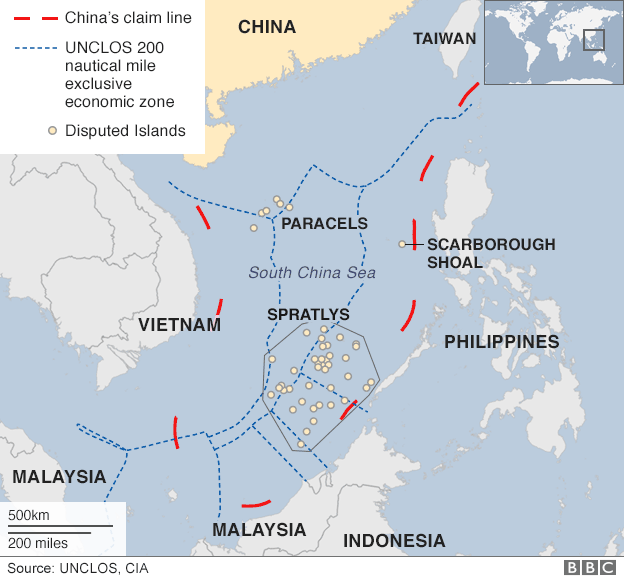This week the Permanent Court of Arbitration ruled that China’s territorial claims to most of the South China Sea have no legal foundation. The Chinese government has rejected the court’s ruling and seems set on continuing to build military and civilian infrastructure on numerous reefs and sandbanks scattered across the South China Sea. This is bringing them into territorial disputes with several countries and heightening geopolitical tensions. (BBC coverage) (Grenatec’s suggested solution)
Over the decades following the Second World War we Europeans built the European Union as a practical project to replace conflict with cooperation. Stewart Taggart and the Grenatec organisation are proposing something similar for the East Asian region, linking all the countries from China and Japan in the north through all of South East Asia down to Australia. The idea would be to link the whole region together with a network of shared infrastructure, especially focusing on gas pipelines, electricity grids and fibre optic cables. This would help create a transformation from territorial disputes and conflict to trade negotiations and cooperation, collaboratively building shared infrastructure suitable for the twenty-first century. The renewable energy potential of this vast region is more than enough to supply its two billion inhabitants, and there would be multiple benefits from greater integration, as Stewart Taggart explains in this video. My blog last week about greater energy integration for countries bordering the North Sea also stressed similar benefits. Gradually an internet of energy is becoming a global reality. In the chaos of post Brexit Britain such cooperative technological opportunities are likely to fall on deaf ears. Eventually we, like the Chinese, will have to learn that international cooperation is preferable to endless conflict. In this the centenary year of the Somme it is a particularly poignant lesson to learn.

